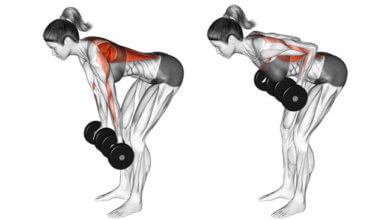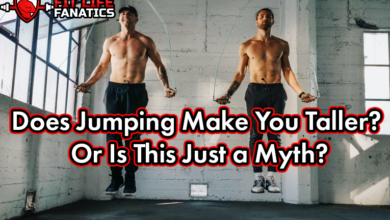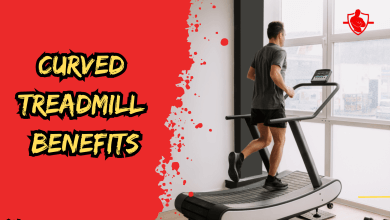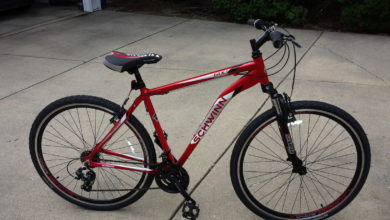Stopped Working Out for 6 Months – What Happens to Your Body During a Workout Break?
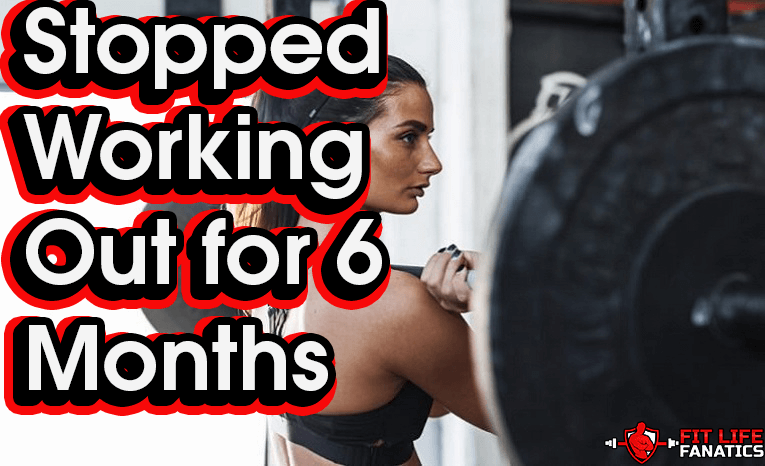
There are all kinds of theories of what happens to you when you stop working out for a brief time period. From half-baked ones like you lose 90% of your strength to absurd ones like your muscles turn to fat, I have heard them all.
But never for once did I expect that I would get to experience this phenomenon firsthand.
Yesterday, I completed six months since I stopped working out. As simple as that, was forced to take a break. No injuries, no illness. Just plain life hitting you with a sucker punch.
I had to move to a new state because of my job and I was too busy with that to work out. So for the first time in over three years, I didn't go to the gym. The small break turned into a big one.
I thought that this was the perfect opportunity to share my insights with you about what happens to a recreational lifter when he stops working out.
How Much does a 6 months break sets you back?
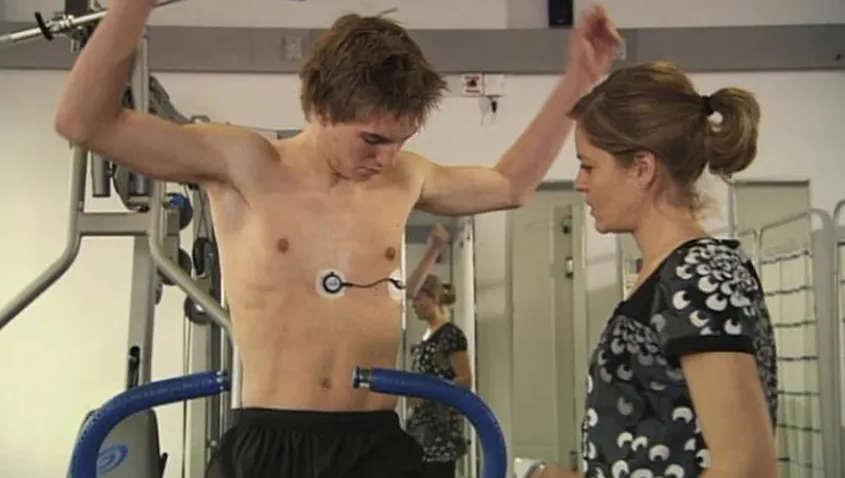
There's an old adage that goes, 'Use it or lose it'. Couldn't be truer. When I stopped working out for 6-months, I noticed significant changes in my cardiovascular capacity. I could race up 4 floors of stairs without panting. But within a month after stopping my weekly 15K run, I started to feel winded by the time I climbed even two floors.
The difference was drastic. Almost night and day. This of course, was not the only change that I noticed. There were visible changes in my body composition. I had lost a fair bit of muscle mass and my waistline expanded by a couple of inches.
What happens if you stop working out for 6 months?

Clinical research tells us that just four weeks of detraining can undo a lot of the strength and fitness gains you achieved over a period of months. The difference in your heart's ability to utilize oxygen and carbohydrates for fuel starts to diminish. That explains why you will feel out of breath, after an extended break.
There's another study published in the Clinical Physiology and Functional Imaging, that speaks about the loss of muscle mass and strength in as little as 12-weeks.
How fast do you lose fitness while taking a 6 months workout break?

As I explained, I started to notice a visible change in body composition within 2-3 weeks. But I brushed it off thinking that it's just a loss of muscle glycogen that's causing the muscles to look deflated.
Then, the reduced VO2 Max hit me like an express train. After I climbed those four floors of stairs and ended up panting, I realized that the loss in cardiovascular capacity is for real.
By the time it was week 16, I knew for sure that there was a significant loss in muscle mass too. Now, I did not do a DEXA scan, so I cannot really tell you the accurate quantity of muscle I lost. But this much I can say, that I definitely did lose muscle tissue.
Why do we lose fitness quickly while taking a 6 months workout break?

Your body undergoes a series of changes when you exercise consistently. It's producing more red blood cells that help you transport oxygen to your working muscles more efficiently. Your heart's pumping capacity increases. You develop a better blood supply to your muscles, as the capillaries widen.
The size of your muscle fibers, like mysoin and actin increases. When you stop, your CNS signals to your body that the continual stress that it was exposed to, is no longer present. So, there's no reason for your body to continue to hold on to all that extra muscle tissue.
Muscle is resource-intensive to maintain. So, slowly but surely, your body will give it up and you will return to ground zero, which is a fancy word for out of shape and dad bod.
What are the physiological impacts on your body due to a 6 months workout break?

Here are some of the physiological impacts on your body after a 6-month break from workouts.
Reduced VO2 Max
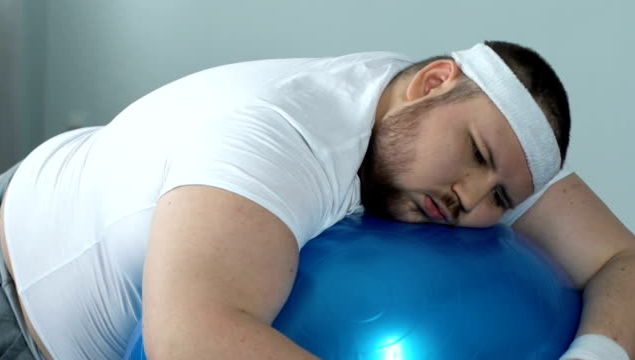
Your VO2 Max is the maximum volume of oxygen that your heart can pump per minute. It's a measurement of how aerobically fit you are. A high VO2 Max is a good predictor of athletic performance, as it speaks to your body's ability to process and utilize oxygen for fuel.
This is the first physiological parameter that dips when you stop exercising. Your heart can no longer utilize oxygen or transport it to the muscles quickly. So, you will feel short of breath when you work out after taking an extended break.
Reduced Muscle Strength and Size

Your muscle mass starts dropping in as soon as 2-3 weeks of your body undergoing a total shut down from workout sessions. This is due to a combination of multiple factors.
There's a reduction in intramuscular fluid and, size and quantity reduction in myosin and actin fibers.
Muscle mass will be further reduced in 6-months. Essentially, the longer you go without working out, the more pronounced the loss of muscle mass.
Fat Gain
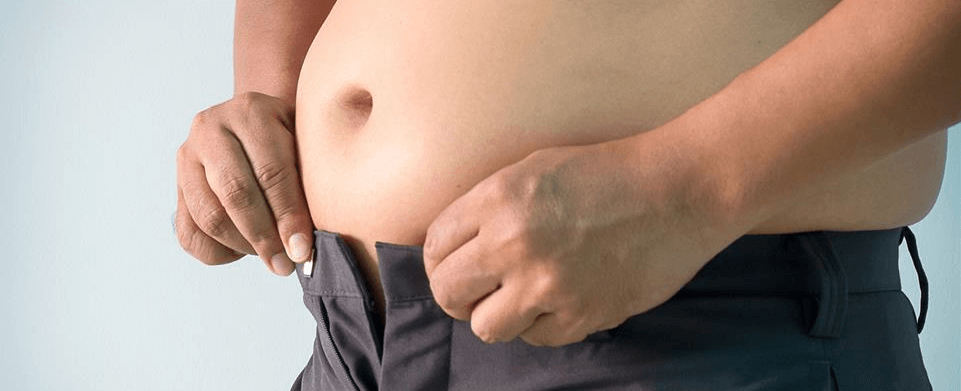
Didn't want to hear this, did you? When you are working out consistently, your body is primed to utilize the food you consume in the most efficient way. Depending on your macronutrient ratio, bulk of this will be used to power your workouts and for building new muscle tissue.
But when you stop working out, your energy utilization pattern changes. There's a net reduction in calorie utilization that earlier went towards workouts.
This reduction will cause fat gain if you are not vigilant about what you eat. Fat is easy for your body to store and it's the most useful fuel source in case of starvation. So, anything surplus is automatically stored as fat.
How to slowly ease back to workout routine after 6 months workout break?
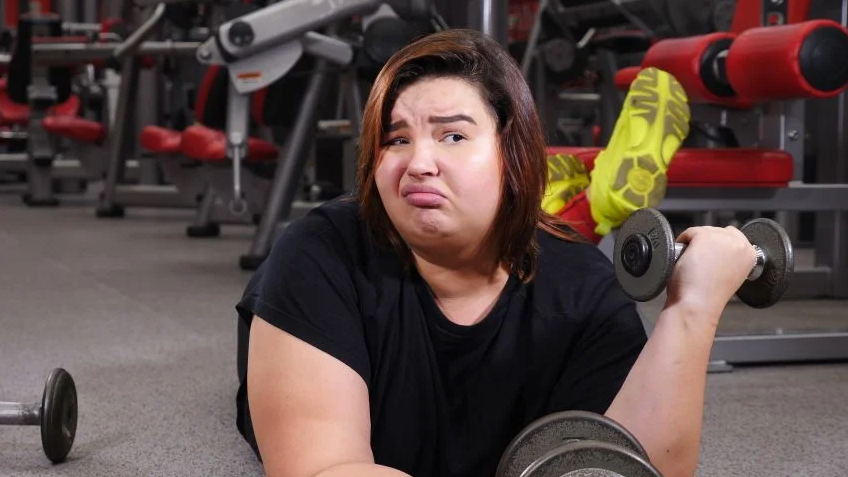
The great thing about your muscle tissue is 'memory'. Muscle memory is for real folks. If you have been working out consistently for years, you will find it a lot easier to bounce back when you start working out again.
That said, it’s a common mistake to overdo it when you resume exercising. You expect to have the same strength, mobility and flexibility that you did when you were working out before and that's not always the case.
How do I get back in shape after not working out for a long time?

Just because you stopped working out for a long time does not mean that the rules of fitness have changed. The rules remain the same.
- Find a fitness program that uses progressive overload
- Start slow
- Take adequate rest
- Sleep for 8-9 hours
- Focus on your nutrition
That's all it takes. With muscle memory on your side, you'll notice a difference in just a few weeks. You can start with small challenges like doing 100 jumping jacks per day, or doing 100 crunches per day.
After that you can ramp it up and start lifting again and here too you should take it slowly, you can start with low rows and dumbbell floor presses and work your way up from there.
What should I do the next time I have to take a break?

The problem with fitness breaks is that they oscillate from months of high-intensity activity to complete sedentary states. There really is no in-between.
You need to plan to keep yourself active during the downtime. It does not need to be as intense as your workouts usually are. For instance, it's not practical to hit the gym or run 5 Kilometers when you are on a holiday.
But you can try and do some bodyweight exercises. You can do a 15-20 min run on the treadmill. Essentially, any form of physical activity that prevents or slows down the above-mentioned physiological changes is good.
How to manage a detraining period?
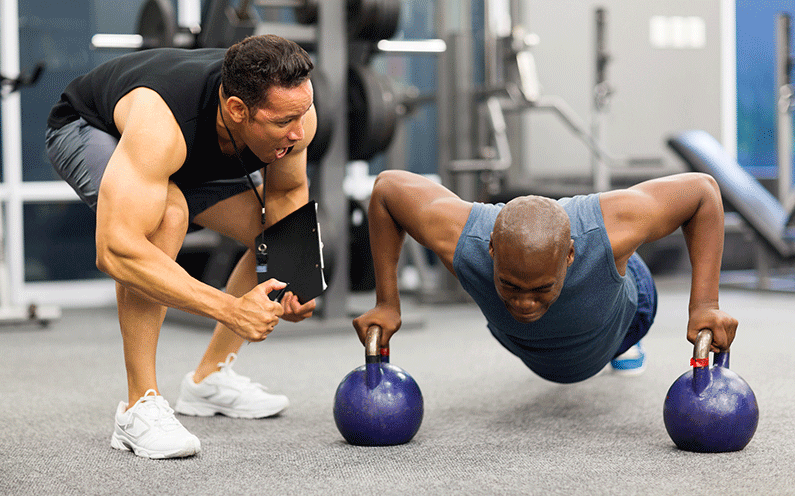
There's no way to prevent the loss in cardiovascular output, or strength and mass during long breaks from workouts. That said, there are ways to make this loss less severe.
In other words, rather than losing 30% of your VO2 Max, you can reduce the loss to say, 15%. It's still better than losing 30%, isn't it? The idea is to either reduce frequency, but maintain intensity, or reduce intensity but maintain frequency.
Things to keep in mind while restarting your workout routine after 6 months?

Here's what you can do to ease back and prevent injury.
Take a few steps backward

Don't go back to your original routine immediately after 6 months of break. Start off with low-intensity workouts and work gradually up towards your target heart rate.
Your body will be quite stiff and you can pull or strain muscles easily. Also, given that your cardiovascular capacity has reduced, the routine you followed 6 months ago might prove challenging for you.
Start with 50% of your 1RM
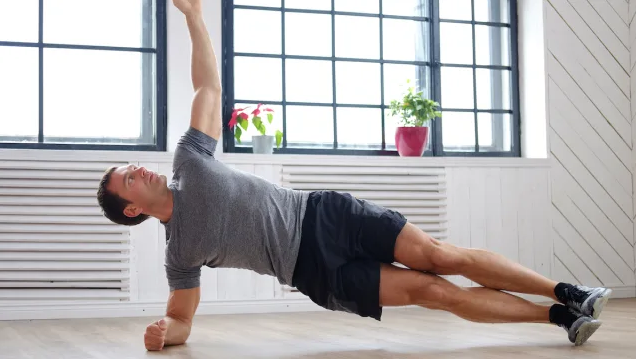
As eager as you might be to get in the squat rack and start pounding iron, you have to take it slow. Muscle memory is one thing. Mobility is another. You need to treat yourself like a beginner.
Start with 50% of your 1RM (One Rep Max) and slowly increase the weight. You will be amazed at how challenging even this weight will feel like. Also, based on how long it has been since your last workout, you might not even need to bump up the weights for weeks.
Adequate rest
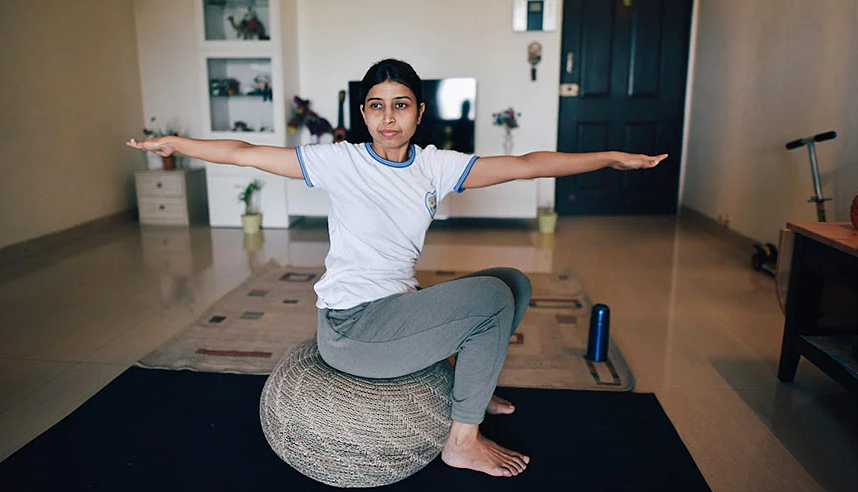
Don't try to make up for the lost time by cutting down rest periods. Take as much rest as you need to prevent fatigue and overwork.
Establish a routine

It will take your body time to get used to working out after 6 months of break. If possible, try to establish a routine and stick to it. Routine helps you stay committed and prevents overwork.
FAQS about stopped working out for 6 months

If you're still unsure about getting back to the gym and restoring your old self, here are some more answers to your questions.
Q. How long does it take to lose muscle if you stop working out?
A. Muscle loss is generally a lot slower as compared to loss in cardiovascular output. But after 12-weeks, you will notice a significant decline in muscle mass, unless you are taking preventive action.
The muscle loss will be more apparent if the break period lasts much longer and you are completely sedentary during this time.
Q. How long does muscle memory last?
A. Researchers have been trying to decode the secret of muscle memory for decades now. There have been numerous clinical studies that have unfortunately produced conflicting results. Some studies state that muscle memory may be permanent, or last for at least 15-years. Others say that it's temporary and you will in all likelihood, lose it in 5-6 months.
Q. How long does it take for your body to get out of shape?
A. Shape is a broad term. If you were new to workouts and fitness and had to take a long break, then you will lose your gains rather quickly and go back to square one.
On the other hand, if you are a seasoned athlete and had to take a break for 6 months, then you wont lose the gains as quickly. You will still lose your cardiovascular strength and muscle mass, mind you. But the changes will not be as drastic as they are for newbies.
Q. What happens to the body after 6 months of exercise?
A. A lot happens. But it depends on the effectiveness of your fitness program, your nutrition, continual progressive stress, rest, sleep, hormone levels, and your age.
That said, even if some of these factors were not on point, your body will still undergo a series of changes. Firstly, you will have gained some amount of muscle mass. Secondly, your cardiovascular output will have improved drastically. Your heart will be able to pump more blood and your lung capacity will improve greatly. Thirdly, you will have gained muscle strength.
That of course is scraping the surface. We are not even getting into the psychological benefits that exercise offers.
Q. How long does it take for muscles to come back?
A. Again, this depends on how long you worked out before you went on the break. If you have been working out for years, then you will regain your muscle mass a lot quicker.
On the other hand, if you were a newbie, then it's quite possible that you had not yet made any significant gains. The hypertrophy you noticed was transient. In this case, you will be restarting from scratch.
To sum it up
Since I have been exercising for over 6-years, I found it reasonably easy to bounce back after my forced hiatus. My cardiovascular strength and muscle mass were almost back to the original levels in about 8-weeks of vigorous training.
But the first 4-weeks were absolute hell. Not kidding. So, do yourself a favor and don’t let those tiny breaks from workouts go on forever. Do whatever form of exercise you can during unplanned breaks. They will help you bounce back a lot sooner.
Related Readings:
- My Personal Chest & Leg Workout for A Big Chest & Toned Muscular Legs
- Best Meal Replacement for Breakfast – Top Tasting Morning Shakes
- Best Kachava Alternatives – Cheaper, Tastier, & Better Substitutes
- Most Surprising Science Back Benefits of Indoor Rowing – & My Favorite Rowing Machine
- One Punch Man Workout – I Did 100 Pushups, 100 Sit-Ups, and 100 Squats for 30 Days – Results and What I Learned!
- Tactical Barbell Review, Results, Pdf Download
Resources:
Ben Mayz
Hi there! I'm Ben, main author and chief editor at Fitlifefanatics.com. I have been obsessed with Strength Training and Fitness for 18 years now.
My passion for living a happy fit lifestyle is what made me realize that fitness is what I wanted for my future.
I went on to earn my Masters in Sports Training & Biomechanics.
My passion for Strength training & fitness and my love of helping others is what made me start Fitlifefanatics.
Here, myself, and a team of specialist aim to provide the most accurate, and actionable information possible in hopes to help foster the fitness community forward.
You can learn more about Fitlifefanatics on our About Page


